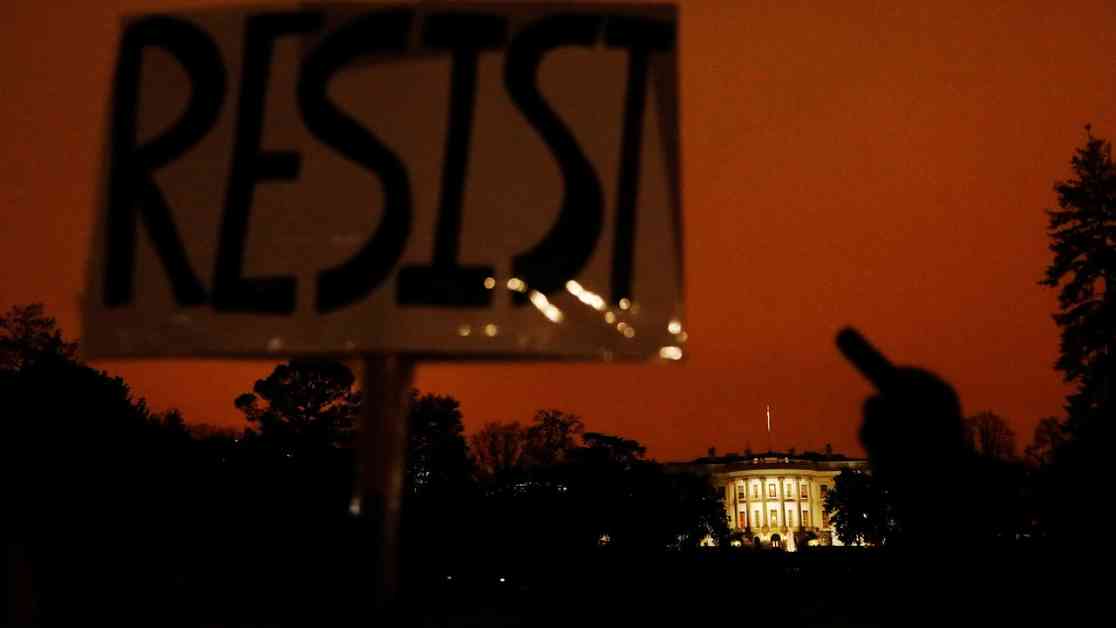In the early days of Donald Trump’s second term, a notable shift has been observed in the resistance movement that once stood in defiance of the former President’s policies and rhetoric. Two key moments captured the essence of this transformation: Bishop Mariann Budde’s plea for empathy towards immigrants and L.G.B.T.Q. children at the Washington National Cathedral, and Representative Brad Sherman’s staunch defense of FEMA during a televised roundtable discussion. Both instances highlighted a call for Trump to embrace pluralism and rational thinking in his governance, appealing to the principles of a liberal democracy.
In the wake of Trump’s return to the White House, the resistance that once roared with fervor during his first term now seems to have dwindled to a mere whisper. The widespread protests and demonstrations that marked the early days of Trump’s presidency, such as the Women’s March and airport protests against the Muslim ban, have given way to a sense of resignation and fatigue among dissenters. The once formidable wave of resistance has ebbed, leaving a sense of disillusionment and uncertainty in its wake.
As the resistance movement grapples with its waning influence, it is essential to reflect on the factors that have contributed to this decline. From the failure to impeach Trump to the lack of significant electoral gains for Democrats, the resistance has faced numerous setbacks over the years. The rise of figures like Joe Rogan, once a progressive voice turned Trump supporter, underscores the shifting tides of political allegiance and belief systems in the current landscape.
The challenges faced by the resistance in the era of Trump 2.0 extend beyond political maneuvering and into the realm of cultural influence. The ways in which information is disseminated and consumed, particularly through social media platforms, have reshaped the landscape of political discourse and activism. The need for a new approach that acknowledges these shifts while maintaining the core values of the resistance is paramount for its survival and relevance in the current political climate.
As the resistance grapples with its identity and purpose in the face of changing political dynamics, the lessons of the past must guide its path forward. The Grammy Awards served as a reminder of the enduring spirit of resistance, with artists like Shakira and Alicia Keys using their platforms to advocate for social justice and equality. However, as the resistance confronts its shortcomings and contradictions, a new vision that goes beyond mere opposition and towards proactive change must emerge to truly make a lasting impact in the years to come.












